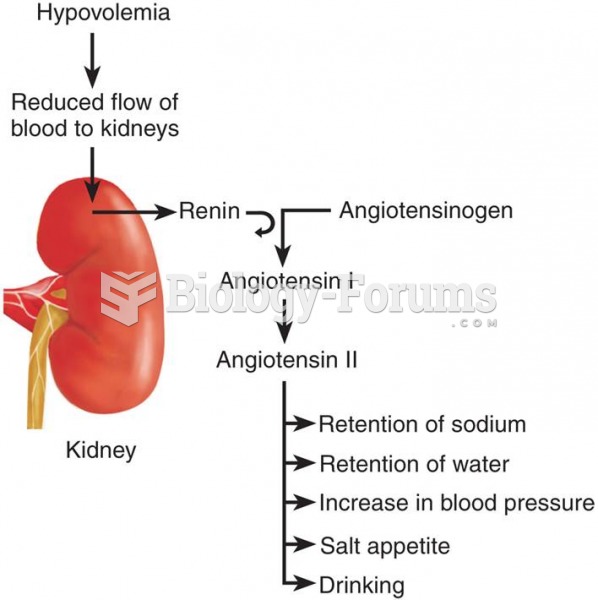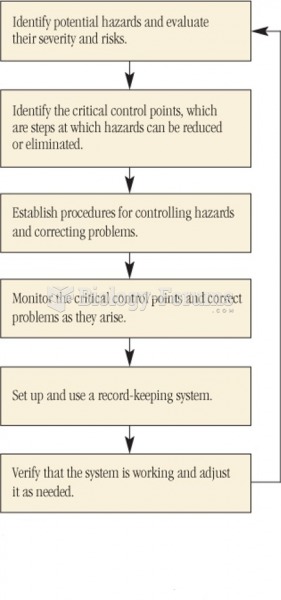Answer to Question 1
Agents of this innate immune system also known as the natural immune system have no memory of previous invaders and mount the same intensity of response each time they are threatened. This innate system contrasts with members of the adaptive immune system also known as the acquired or specific immune system that remembers past invaders and other bad characters (e.g., the FBI's 10 most wanted list) and can mount a vigorous response against specifically remembered offenders. Since the adaptive immune system takes 4-5 days to be activated against a novel invader, the innate immune system must defend us indiscriminately against threatening antigens in the meantime using its quick reaction response capabilities that are often activated within minutes. Without the innate immune system defending us, we could very well die from infection waiting for the adaptive immune system to engage in battle.
Answer to Question 2
The human immune system is designed to protect us from exogenous (outside) and endogenous (inside) toxins, substances, particles, cells, and organisms that pose a threat to our physical well-being. These threats to our health are referred to as antigens. Antigens are the cast of bad characters that we want to keep out of our biological systems because they are disruptive and often dangerous. Exogenous antigens include bacteria, viruses like the cold virus that infected Nicole, fungi, and other entities that could potentially become life threatening, whereas endogenous antigens involve our body's own cells that are infected with viruses or have mutated into tumor or cancer cells. The immune system is like a nation's federal law enforcement agency (e.g., the FBI in the United States) protecting its citizens and government against endogenous threats and the national armed services (e.g., the army, navy, air force, and marines) protecting citizens from exogenous threats. The various agencies and branches of the military each have specialized roles, and collectively they serve to defend the body of the nation against threats to its survival.







